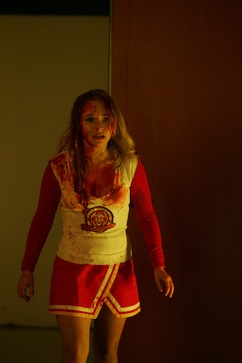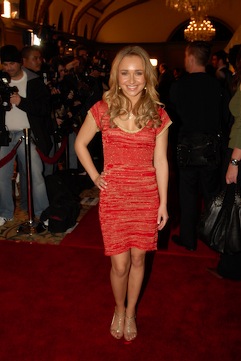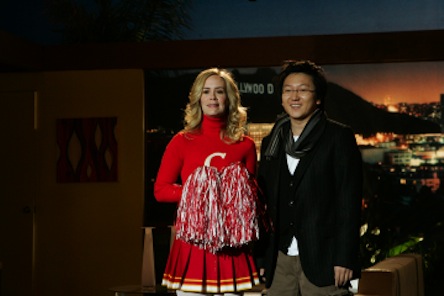"From zeros to Heroes:" Sudden success beats the alternative
01/28/07 09:31 PM


By ED BARK
PASADENA, Calif. -- Hayden Panettiere, all of 17, has been in show business almost since conception.
"Eight months old I started in this nuts business," she says, referring to her first screen appearance in a Playskool commercial.
Fellow Heroes star Masi Oka, a comparatively grizzled 32, also knew the spotlight at an early age. As a 12-year-old, he appeared on a 1987 Time magazine cover titled "Those Asian-American Whiz Kids."
Still, both were far more anonymous than not until NBC's Heroes became a breakout hit this season. Panettiere's seemingly indestructible Claire Bennet ("Save the cheerleader, save the world") and Oka's time-shifting Hiro Nakamura since have catapulted both actors to full frontal fame.
Oka already will be doing a sendup of his Heroes character on Monday's (Jan. 29) episode of NBC's Studio 60 on the Sunset Strip. On the same night he'll be sharing scenes on a new Heroes episode with Star Trek's George Takei, who is playing Hiro's father.
"I kind of wish it was gradual, so I had a chance to like acclimate myself," Oka says at a recent NBC party. "I've come from a zero to all of a sudden a hero in many ways."

Until Heroes, Panettiere's most visible TV role was leukemia victim Lizzie Spaulding on The Guiding Light. Much earlier, as a four-and-a-half-year-old, she played Sarah Victoria "Flash" Roberts on another daytime soaper, One Life to Live.
A small role in 2000's Remember the Titans brought her a bit of recognition, but Heroes is "the deciding factor that really got me over that hump, which often you catch yourself on."
She says this while surrounded two dozen or so TV critics after a crowded interview session packed with 10 Heroes stars and producer/creator Tim Kring.
"It's a new sort of thing," Panettiere says of the fame Heroes has wrought. "You know things are happening when you walk out of your apartment and there are two cars full of paparazzi who had followed me home. It was sort of a scary feeling . . . I didn't know whether to be completely flattered or kind of nervous about it. Then another person actually followed me all the way to work and started running red lights. I was calling my parents and going, "Oh my God!' "
She hasn't hired a bodyguard and doesn't want to go that route. "When you have them, it's almost like people want to get to you more. They fight harder and it becomes really dangerous. As opposed to if you just give yourself to the public. Then it's almost like they become your protection.
"It's not like I go wandering down dark alleys at night by myself. I usually have friends with me, and people are usually very courteous. Hopefully nobody really thinks I'm invincible and tries to do something rash."
Pre-Heroes, Oka had been kicking around in lesser fare such as One Sung Hero, God Wears My Underwear and House of the Dead II: Dead Aim. No one of any import ever praised him for this work. But at the Jan. 15 Golden Globes ceremony, "suddenly I was in the same room with all of this amazing talent. Tom Hanks came up to us and said, 'We love your show.' And Steven Spielberg, too. That's surreal."
He does miss being left alone in restaurants.
"I go out to eat by myself a lot, so I can collect my thoughts and read scripts and things. It's like my moment of zen and peace," Oka says. "But now I can't do that. People come up to you. Sometimes they'll just sit right down across from you and ask, 'Can I eat with you?' "
At least no one's asked him to time-shift yet. And Oka figures it's better to have "passionate fans" than rampant disinterest. He's still a nobody in his homeland, though, where Heroes isn't yet on home screens.
"I can still be anonymous in Japan," he says. "Which is the irony of it all."
